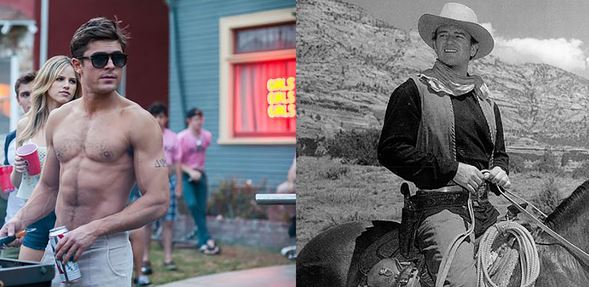“Toxic masculinity” has become a buzzword of sorts in media and culture alike. But in Pennsylvania, Gettysburg College is taking the issue to a whole new level, the College Fix reports.
Students at Gettysburg college who identify as male are now required to watch a documentary entitled “The Mask You Live In,” directed by feminist Jennifer Siebel Newsom. As seen in the documentary’s trailer (see below), the video’s main premise is that the three most destructive words a boy can hear are “be a man.”
The trailer claims the film pursues an “exploration of American masculinity” that focuses heavily on the stereotype that “real men don’t cry” – or have feelings, for that matter. Other topics mentioned include bullying, abuse, suicide rates for men and boys, the connection between respect and violence (“respect is linked to violence”), and the ever-present burden of “needing to prove themselves” that hangs over American males throughout their lives. The trailer seems to present these issues as being innate to masculinity, suggesting that masculinity is in itself a sort of evil.
So what is American masculinity, exactly? And why is it being touted as such a problem today?
Roughly a half a century ago, many of the Old Western cowboy dramas painted the picture for what “American masculinity” was. Think of John Wayne, “The Rifleman,” “Bonanza,” or other Western-themed TV shows that featured rough, rugged, and manly-yet-virtuous cowboys. These characters could ride, rope, shoot, drink, survive in the wilderness, win bar fights, and do every culturally masculine activity under the sun exceedingly well. Yet, at the same time, they were virtuous – always using their masculinity for the betterment of themselves and others. Chivalrous and protective, they were ready to help those in need, whether that be a friend, a woman, a child, or the small gold-mining town through which they were traveling. They did not use their strength or smarts against the weak; they respected everyone, and everyone respected them. They were masculine icons piped into American homes, archetypes small boys looked up to.
Fast forward to 2017. Today’s “American masculinity” is more embodied in the typical frat boy. Think about Zac Efron’s movie roles over the past few years in Neighbors or Mike and Dave Need Wedding Dates. Irresponsible and boyish, these characters live the high life by partying it up in college and beyond. This fratty audience is exactly the one that colleges such as Gettysburg College are trying to target and “detoxify.” And they are right – in a sense, at least: today’s “college male” does need quite a bit of detoxification.
Let’s look at a few statistics about college males today. In a Telegraph article from 2015, a UK study found that one in every eight men said that they had no friends outside of the home with whom they could discuss a serious issue. Half said that they had two or fewer friends. As we have previously discussed here at Intellectual Takeout, 70 percent of men between the age of 18 and 24 watch porn at least once a month (and that’s a conservative estimate).
Regarding college attendance, the numbers of men on college campuses are shrinking because fewer men are deciding to pursue higher education. There is of course the infamous statistic alleging that 1-in-4 women are raped on college campuses, a figure which, if accurate, would stem primarily from frat boys and their house parties. Examining mental illness statistics, college males are twice as likely as college females to commit suicide. And finally, college students in general spend more than four hours a day on social media.
Newsom’s diagnosis that much of this “masculinity” is toxic is correct. But I disagree with the cure she presents.
First, the notion that masculinity is inherently evil is false. Today’s frat-boy brand of “masculinity” is inherently bad because it is not manly, but boyish. It is riddled with the selfish vices of adolescence –lust and sloth, to name two. Contrary to the documentary’s claim that telling boys to be men is dangerous, I believe such words are exactly what they need to hear. College males today need to be told to be men. They also need examples of virtuous men to look up to, both on television and in real life. They deserve to be raised in their homes by their fathers (currently only two out of three are), who can help show them the difference between faux masculinity and manhood.
Secondly, making men more in tune with their emotions by breaking down the stereotype of “real men don’t cry” (as just one example) or trying to make men less masculine and simultaneously more feminine is not the answer. The attributes and strengths of both genders should be allowed to flourish. Manliness was considered a virtue by the Romans. We derive the English word “virtue” from the Latin word “virtus” which has the word “man” – “vir” in Latin – at its base.
Society would benefit greatly from having men who are truly masculine participating in it. So, instead of turning men into women, why not encourage them to go to college (and succeed), build authentic friendships, and learn self-control? Why not instill a greater good in today’s male college students and give them the tools they need to strive towards and reach it? Teach them about the vices men fall prey to – lust, sloth, greed, and envy – but give them the wisdom to overcome them. The founding fathers understood the importance of character education well. Patrick Henry defined a great man with the following: “Adversity toughens manhood, and the characteristics of the good or the great man is not that he has been exempt from the evils of life, but that he has surmounted them.”
Similarly, Benjamin Franklin recognized the essentiality of virtue: “It is a grand mistake to think of being great without goodness; and I pronounce it as certain, that there never was yet a truly great man that was not at the same time truly virtuous.”
It was not the Old Western cowboys’ ability to rope and shoot which made them men; it was their pursuit of the greater good and the fact that they used the qualities unique to their masculinity for the betterment of others. This is what made them permanent icons of American masculinity. They recognized that their great masculine abilities came with far greater human responsibilities, and just as they rose to the challenge eagerly and successfully, so too can the men of today.
—
[Image credit: Western Poster Page and Youtube]















